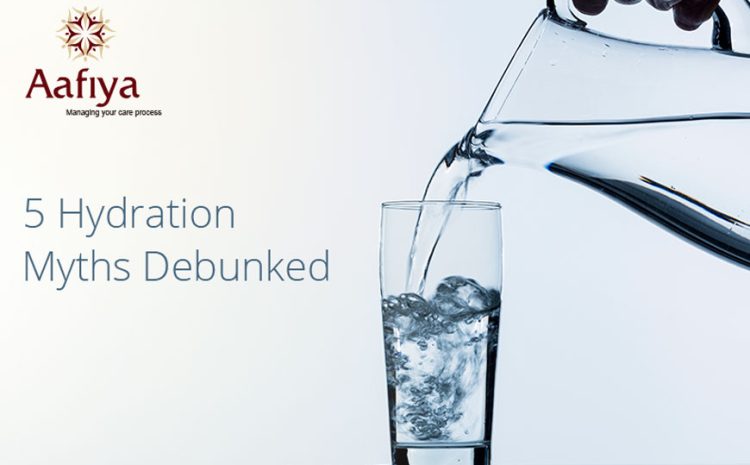
5 Hydration Myths Debunked
Human body is composed of 70 percent water. Yet, a huge population, especially adults, is dehydrated so much so that they are experiencing symptoms such as fatigue, headache, and heart & kidney complications. How much water do we really need then? Here are some of the most common myths about dehydration:
1. Caffeine Causes Dehydration
Contrary to popular opinion, caffeine facilitates hydration levels in the body. Recent studies corroborate to the fact. Especially after a night’s sleep, during which the body is dehydrated, a cup of coffee ensures restoring hydration.
2. Eight Glasses of Water Every Day
Although, hydration remains an important health guideline, the amount of water required differs according to age, sex, workload, weather and physical conditions. For instance, pregnant and lactating women also require more water to stay hydrated because of the physical stresses. Local weather conditions also determine whether one needs to take more water or not.
3. Not Thirsty, Not Dehydrated
Thirst does not go noticed until much later. That means that by the time the body signals thirst, the body has already undergone severe dehydration enough to affect mental and physical functions. As one progresses in age, the thirst mechanisms tend to decline, indicating that thirst signals are not sufficient to stay hydrated. In fact, physicians advice people to check the colour of their urine to see whether they are hydrated.
4. More Water, More Hydration
High hydration levels causes dilution of electrolytes including sodium levels in the blood, a state called hyponatremia. This is a dangerous medical condition, also adding that low sodium levels causes low blood pressure and fatigue. Ensure that you drink enough water that can be excreted by the body in a particular time duration.
5. Sports Drinks Are Better Than Water, Always
Sports drinks compensate for the electrolyte loss in the body after strenuous workout. But for a simple jog, water is sufficient to rehydrate the body. Water is the most natural rehydrating element for the body. Supplement water with other drinks but do not replace water.




